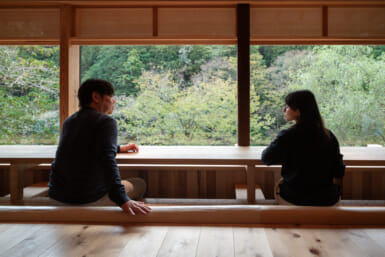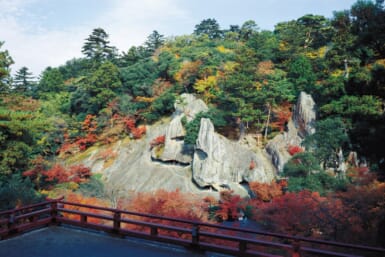For as long as I can remember, I have believed in a simplistic theory: that the economic center of gravity of the world would move from West to East.
Now that this is coming about—and a combination of Chinese labor with Taiwanese, Japanese and other regional capital has lifted China into the driving seat, the question arises of who is the boss in this configuration out here. Is it China? Or is it Japan? Or who is it?
Who, to be crassly simple, is supposed to be in charge of this part of the world along with America? Who will share supremacy with Washington? We don’t know the answers to these questions, and cannot know them, and it seems to me almost pointless to speculate.
But what we can say is that, for the first time, it is reasonable to ask such questions. That is the implication of so much that we see by way of new facts coming out of China at this point in time.
My God, they are in the middle of their New Year over there, and the Chinese are making 1.49 billion journeys; by rail, bus or water, to meet up with their relatives. The face of the earth is crawling with these people. China recorded a nine percent growth rate last year—to make it by far the fastest-growing big economy in the world.
Some of the profit from that enormous churning is being ploughed back into the travel industry in China, creating more growth in 2004.
At a dinner party the other night here, someone who follows China and its economy on a daily basis was spouting out the latest figures on foreign investment flows. Taiwan has invested $1,000 billion there, he said, making them by far the largest single source of funding.
My head reeled with the numbers, but the gist of the comment was that all of this capital is being mopped up from overseas—Taiwan, Japan, the U.S. … and none of it may come back, or not much.
“The Communist Party will grab it all,” said this rather partisan companion at dinner.
“What, the Communist Party?” I asked myself. “They still have a Communist Party over there?”
Well, actually yes, lest we forget. So my question, as raised above, can be rephrased. Is it to be a commie China or a free Japan that has most say in shaping the region?
We don’t know. What we can say is that Japan is hand-in-glove with the U.S.—and China is not. In other words, that ancient saying of the late Mike Mansfield—”the U.S.-Japan relationship is the most important relationship in the world, bar none”—was and is relevant.
So let us pause and consider. Japan is caught in a nice, pivotal position between the two great powers of these parts—China and the U.S. No wonder this Tokyo platform of ours—this offshore Shanghai—has turned into a place to watch from afar with much interest.
The other day, my office in the UK sent me a surprising clip from one of the glossy magazines over there—an article headed “How the Japanese Shop,” by Sheryl Garratt. As an unreformed anti-shopper, I recoiled from the headline, but I read through the article with fascination. It went:
“The Japanese love of shopping has transformed Tokyo into the most progressive retail capital in the world. As Japanese tourists and their digi-cams fan out around the globe, increasing numbers of western hipsters visit Tokyo and return in a state of frenzied acquisitiveness —clutching the latest limited-edition trainers, rare one-off T-shirts… In terms of instant retail gratification, there isn’t really anywhere else like it.
Tokyo has the most sophisticated shops in the world.”
So we’ve got the Chinese traveling, we have the Japanese traveling, and there are those acquisitive Westerners coming to Tokyo.
And after all, it is tourism and the travel industry that is shaping the world around us—and not terrorism. Switch on the BBC, and you see images of despair—disorder in Kabul, rage in Baghdad, destitution in sub-Saharan Africa, on and on and on… But here in Tokyo, the denizens of Shibuya, Shinjuku, the Ginza are not so interested.
They are busy shoppin’, they are paradin’ up and down Harajuku in search of grace. So there you go. The shoppers of the world are winning, come hell or high water—come China or Japan.
My reading of this is that we are seeing one of those bursts of creativity here that come just once or twice in a century. We are lucky to be here in Tokyo. This high-water mark of endeavor won’t last forever, we all know. Now is the time to place your bets, if you are in business.
Good luck, bonne chance, ganibatte.









